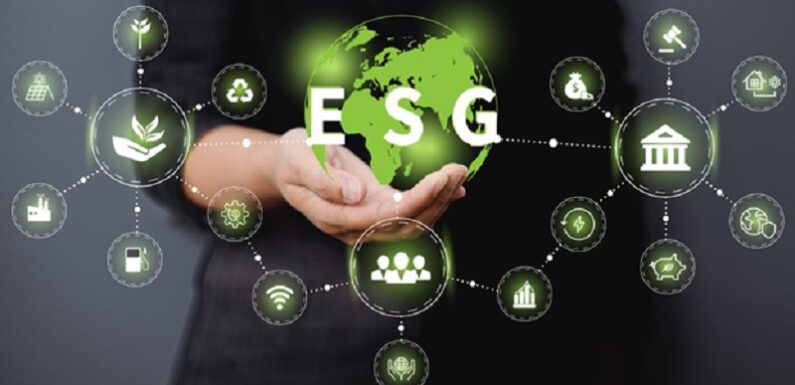
Whether you’re just beginning your journey into Environmental, Social, and Governance (ESG) reporting or you’ve been managing an ESG program for years, one thing is clear: collecting and organizing ESG data takes a lot of time and effort.
Companies often deal with endless spreadsheets, different types of data from multiple departments, and complex reporting standards. If you’ve ever tried to pull energy use numbers or track carbon emissions from suppliers, you already know how confusing and tiring it can be.
That’s why more and more companies are turning to ESG software—special tools designed to simplify the way businesses collect, organize, and report ESG information.
In this guide, we’ll explain what ESG software is, who uses it, what to look for in a platform such as Isometrix.com, and how it can make your reporting process much easier and more accurate.
What is ESG Software?
ESG software is a digital platform that helps businesses collect and manage data related to their environmental, social, and governance performance. It makes tracking and reporting ESG data much easier by offering features such as:
- Cloud access: So teams in different offices or departments can enter and view data at any time.
- Automatic data collection: Some systems can connect with Internet-of-Things (IoT) devices to gather real-time data and reduce manual entry.
- Emissions calculators: Built-in tools use official data sources to calculate carbon footprints for Scope 1, 2, and 3 emissions.
- Reporting templates: Pre-set formats help you meet international ESG standards like GRI, SASB, or TCFD.
- Real-time dashboards: Get live updates on your company’s ESG performance and progress toward your goals.
This software is designed to take the stress and confusion out of ESG reporting and turn it into a more manageable and useful business process.
Who Uses ESG Software?
ESG software is used by a wide range of industries and organizations, including:
- Agriculture and food production
- Automotive companies
- Cybersecurity firms
- Construction and engineering businesses
- Banks and investment firms
- Government departments
- Hotels and tourism companies
- Oil and gas producers
- Colleges and universities
- Shipping and transportation companies
Basically, any organization that needs to track and report ESG efforts can benefit from using ESG software.
How ESG Software Can Help Your Business
While ESG platforms can differ in features, a good system should help your business in several important ways:
1. Calculate and Track Carbon Emissions
One of the most time-consuming parts of ESG reporting is calculating your company’s carbon emissions. You need to gather data from energy use, vehicle fuel, supplier emissions, and more. On top of that, data might be reported in different formats or units.
With ESG software, you can collect all this information in one place. The software will automatically convert units and apply standard emission factors, giving you an accurate and easy-to-understand report on your carbon footprint. Once the data is set up, it’s simple to update in the future.
2. Manage Charitable Giving and Community Involvement
Tracking how your company supports local communities—through donations, volunteering, or other social programs—is another important part of ESG.
If your company has different offices or departments running their own projects, ESG software can bring all that data together. This allows you to track total impact and link your giving back to company-wide goals, making it easier to report on the social side of your ESG program.
3. Track Progress on Diversity, Equity, and Inclusion (DEI)
DEI is a growing focus for many organizations, and investors now want to see real numbers showing progress—not just public statements.
ESG software can help you track DEI goals using dashboards, charts, and visual reports. You can monitor hiring trends, pay gaps, team diversity, and more. This makes it easier to communicate your progress and show your commitment to building an inclusive workplace.
Types of ESG Software
Not every tool that calls itself “ESG software” offers the same features. Some focus mainly on the environment, while others may only track social efforts. When choosing a platform, it’s important to know exactly what each option includes.
Here are a few common types:
- Sustainability software – Often focused on tracking energy use, emissions, waste, and water usage.
- CSR software – Usually centers on community involvement, donations, volunteering, and DEI programs.
- ESG reporting tools – Help collect and format data, but may not help analyze or guide future strategy.
For the best results, look for a complete ESG solution—like the AMCS ESG Platform—which supports reporting for all three areas: Environmental, Social, and Governance. These platforms allow you to see the full picture and support better business decisions.
Conclusion
Tracking and reporting ESG data doesn’t have to be overwhelming. With the right software, you can simplify the entire process—collecting accurate data, staying compliant with regulations, and showing real progress to your investors and customers.
Whether you’re tracking carbon emissions, managing diversity programs, or reporting on your charitable efforts, ESG software helps you do it all more easily and with fewer mistakes.
Choose a platform that matches your needs, supports your growth, and helps you build a more responsible and successful business.

